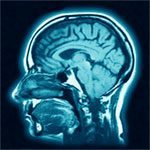 The neurology is the branch of medicine in charge of study of the nervous system. It is a very complex area of knowledge since it is the main system in charge of controlling the operation of the other systems, in addition to the activities related to information processing and relationship with the environment.
The neurology is the branch of medicine in charge of study of the nervous system. It is a very complex area of knowledge since it is the main system in charge of controlling the operation of the other systems, in addition to the activities related to information processing and relationship with the environment.
Neurology encompasses the study of the functioning of the nervous system, as well as the diagnosis, treatment and prevention of the various diseases that affect it in both adults and children.
The specialist in neurology is the neurologist. It is generally an area that constitutes a subspecialty of internal medicine.
Main conditions under study in neurology
Vascular disorders The most common neurological problems are related to changes in the cerebral blood vessels. These include disorders such as migraine, an important and common cause of headache, as well as cerebrovascular accidents that can be due to a lack of oxygen supply to neurons due to the obstruction or rupture of the arteries located within the skull.
Epilepsy. Epilepsy and other types of seizures are disorders in which specific areas of the brain are abnormally activated, producing manifestations that mainly include the appearance of involuntary movements that may or may not be accompanied by alterations in the state of consciousness.
Infections Nervous system infections are serious disorders, as they can cause permanent damage. These types of infections are known as meningitis when they affect the membranes that cover the nervous system, meningoencephalitis when they also involve structures such as the brain, cerebellum and brainstem, myelitis when they affect the spinal cord, and abscess when it comes to collections of pus.
Loss of mobility Loss in the ability to carry out movements is a problem that can be due to disorders such as the appearance of degenerative diseases, mainly multiple sclerosis and amyotrophic lateral sclerosis, or it can be a sequel to a stroke or a traumatic injury.
Tumors Nerve cells can also be affected by abnormal growth leading to the development of malignant lesions such as cancer.
Main tools of neurology
Neurology is one of the medical specialties where the clinical examination of the patient has the greatest value. A good physical examination is sufficient to make the diagnosis, thanks to the wealth of symptoms and manifestations that accompany diseases of the nervous system.
Once the symptoms have been oriented, it is possible to confirm the suspicions by carrying out a series of studies that allow evaluating both the anatomy and the function of the nervous system. These studies include:
Electroencephalogram. It is a record of electrical activity in the brain. It is used for the diagnosis of seizures and epilepsies.
Electromyography. This study allows to evaluate the function of the peripheral nerves.
Tomography. Tomographs allow images of deep structures to be obtained, they are very useful to evaluate the bones of the skull and the presence of injuries such as fractures.
Magnetic resonance. This is perhaps the most widely used study in neurology, it allows obtaining detailed images of the structures of the nervous system with which the presence of tissue damage due to cerebrovascular accidents, as well as infections, tumors and herniated discs can be better evaluated.









